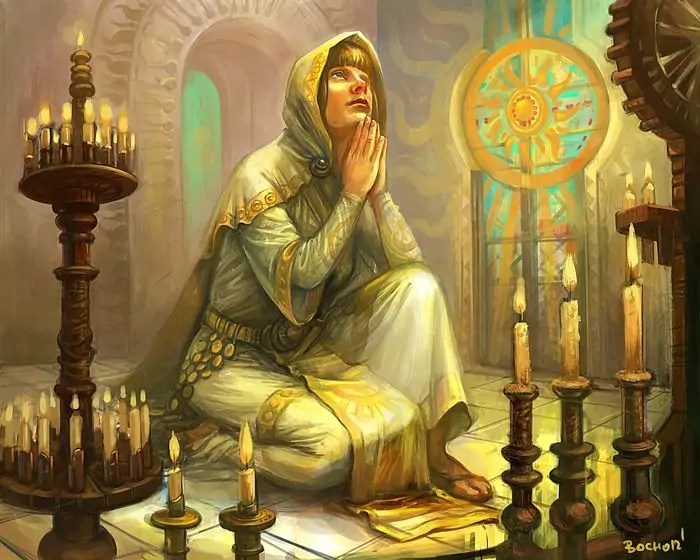Ceremonies have always been a significant part of various cultures and practices, and in the realm of Dungeons & Dragons (DND), they take on a unique twist. Whether it’s a wedding, a rite of passage, or a ritual to honor the gods, ceremonies in DND add depth to the storytelling experience and provide an opportunity for characters to engage in meaningful actions. The beauty of these ceremonies lies in their ability to bring players together, connect them to their characters, and enhance the overall narrative of the game.
The incorporation of ceremonies into DND allows for an exploration of traditions, beliefs, and the magical elements of the fantasy world. Players can design elaborate rituals that reflect their characters’ backgrounds, cultures, and personal stories. These ceremonies can range from simple gatherings to grand events filled with intricate details, making them an exciting aspect of gameplay that can lead to unforgettable moments and character development.
In this article, we will delve into the various aspects of ceremonies in DND, exploring their significance, types, and how they enrich the game. We will also address common questions players have about incorporating ceremonies into their campaigns, providing tips and examples to inspire creativity and enhance gameplay. So, let's embark on this magical journey and discover the enchanting world of ceremony DND!
What is a Ceremony in DND?
Ceremonies in Dungeons & Dragons represent important events or rituals that characters may participate in throughout their adventures. These can be anything from formal gatherings, weddings, and festivals to solemn rites or ceremonies of devotion to deities. The purpose of these events is to create meaningful moments within the game narrative, allowing characters to connect with their backgrounds, relationships, and the lore of the world they inhabit.
Why Are Ceremonies Important in DND?
Ceremonies serve several vital functions in DND gameplay:
- They provide opportunities for character development and backstory exploration.
- They enhance player engagement by creating memorable moments and interactions.
- They deepen the lore of the game world, enriching the overall setting.
- They can introduce new quests, plot hooks, or challenges for players to overcome.
What Types of Ceremonies Can Be Included in DND Campaigns?
There are numerous types of ceremonies that players can incorporate into their campaigns, including:
- Weddings: Celebrations that unite characters, often involving family, friends, and significant rituals.
- Rites of Passage: Ceremonies marking a character's transition from one life stage to another, such as adulthood or knighthood.
- Festivals: Community celebrations honoring gods, seasonal changes, or historical events.
- Funerals: Commemorating the deceased, providing closure, and reflecting on the impact they had on the world.
- Devotional Ceremonies: Rituals performed to honor and appease deities, often involving sacrifices or offerings.
How Do You Create a Ceremony in DND?
Creating a ceremony in DND involves careful planning and consideration of several aspects:
- Determine the Purpose: What is the significance of the ceremony? Is it a celebration, a rite of passage, or a solemn occasion?
- Establish the Setting: Where will the ceremony take place? Consider the location, ambiance, and any relevant decorations.
- Include Rituals and Traditions: What specific actions or elements are involved in the ceremony? Think about symbolic gestures, chants, or offerings.
- Consider Character Involvement: How will the characters interact with the ceremony? Will they be participants, observers, or key figures in the event?
What Are Some Examples of Ceremonies in DND?
Here are a few examples of ceremonies that can be integrated into your DND campaigns:
- Wedding Ceremony: A lavish event where two characters unite, complete with traditional vows, music, and dancing.
- Initiation Rites: A group of adventurers undergoes a ritual to become members of an elite guild or organization.
- Harvest Festival: A community gathers to celebrate the bountiful harvest, featuring games, food, and rituals to honor nature.
- Funeral Procession: Characters pay their respects to a fallen comrade, reflecting on their life and the impact they had.
Can Ceremonies Impact Gameplay?
Absolutely! Ceremonies can have profound effects on gameplay in the following ways:
- Character Growth: Characters may experience personal revelations, forge new relationships, or confront past traumas during ceremonies.
- Plot Development: Ceremonies can introduce new quests, events, or conflicts that propel the narrative forward.
- World-Building: The inclusion of ceremonies adds depth to the game world, providing players with a sense of connection to the setting.
How Can Players Prepare for a Ceremony in DND?
Preparation is crucial for successfully incorporating ceremonies into your DND sessions. Here are some tips for players:
- Collaborate with the Dungeon Master: Discuss the ceremony's significance and how it fits into the overarching narrative.
- Develop Your Character's Background: Consider how your character feels about the ceremony and their role in it.
- Engage with Other Players: Coordinate with other players to create meaningful interactions during the ceremony.
Conclusion: Embracing the Magic of Ceremony DND
Ceremonies in DND are more than mere events; they are gateways to character development, storytelling, and world-building. They provide players with opportunities to deepen their connections to their characters and the game world, creating memorable moments that leave lasting impressions. Whether it's a joyous celebration or a solemn rite, incorporating ceremonies into your DND campaigns can enhance the overall experience and make your adventures even more magical. So, embrace the art of ceremony DND, and let your imagination soar!
You Might Also Like
Lela Rochon: A Journey Of Weight Loss And TransformationDiscovering 5 Letter Words Starting With T A B
Exploring The East German Shepherd Working Line: A Comprehensive Guide
Exploring The World Of Jobs That Work Overnight
Growing Sweet Potatoes: How Far Apart Do You Plant Them?
Article Recommendations
- Desi Mms
- Latest Telugu Movies 2023 Download Now
- Christopher Cross Jan Bunch A Harmonious Blend Of Talent And Inspiration


